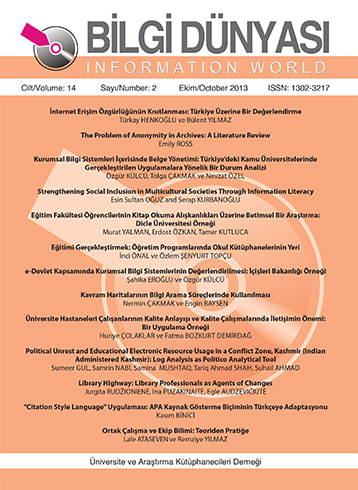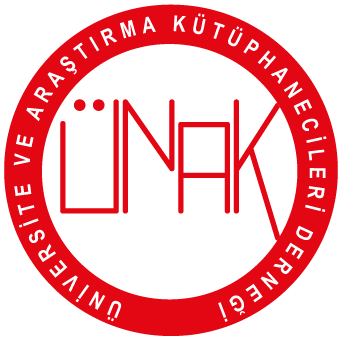The Use of Concept Maps in Information Search Process
DOI:
https://doi.org/10.15612/BD.2013.126Keywords:
Concept, Concept map, Information search, Information search processessAbstract
Concept Maps, based on Ausubel’s maningful learning theory and created by J.D. Novak and his collegues during a research program kept at Cornell University, is one of the learning and teaching methods. Concept maps is not only utilized and tested in education, social and natural sciences but found to affect most other sciences. One of these is library and information sciences. The present research focused on only the effects of concept maps on students’ (primary, secondary, high school and university) information search process.
Analysing the literature concerning those research mentioning the effects of the concept maps on information search process, concept maps were shown as efficient strategic tool in defining information need, focusing research teme, information retrievel, organizing and synthesizing information and in writing during students’ information search process.
The present research answers many questions: What is a concept?; What is a concept map?; How do the concept maps affect information search process ?; How can the concept maps utilized in information search process? by analysing the literature and current applications.
Any research concerning the utilization of the concept maps in library and information sciences in Turkey were not found. Present research revealed both the advantages of utilising concept maps in education and its applications aimed to raise its awarness.
Downloads
Published
How to Cite
Issue
Section

This work is licensed under a Creative Commons Attribution 4.0 International License.






